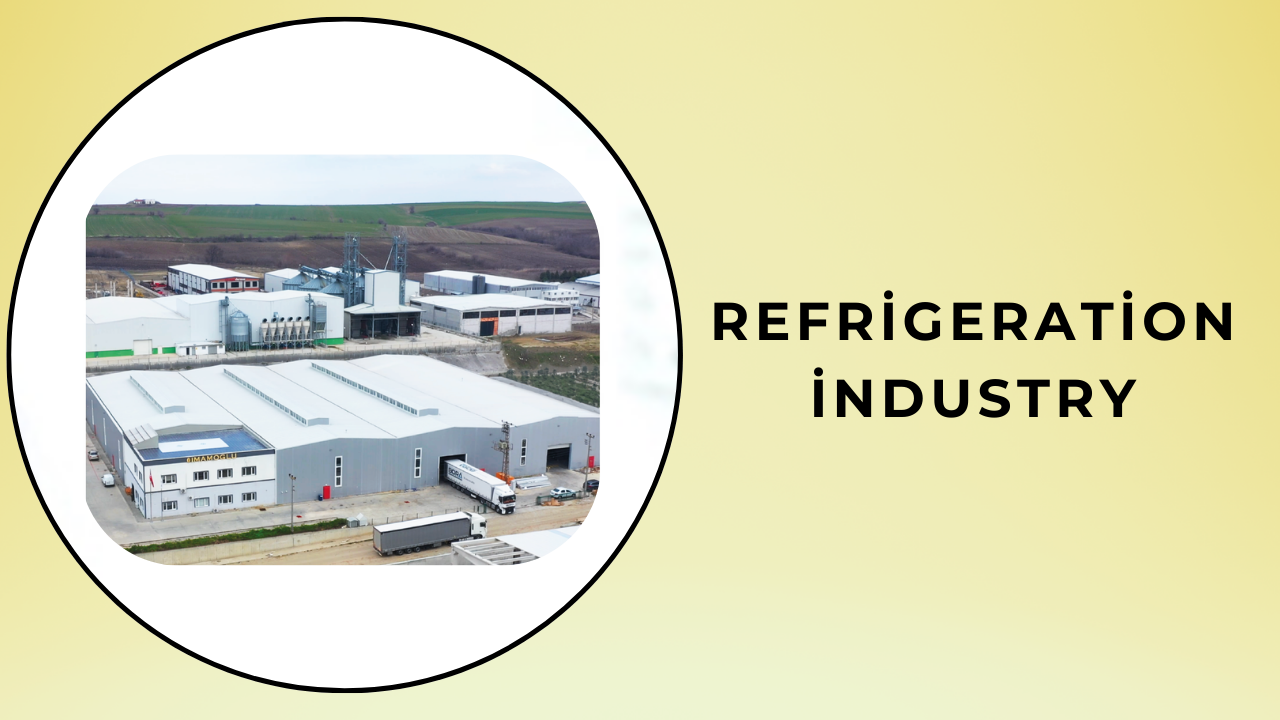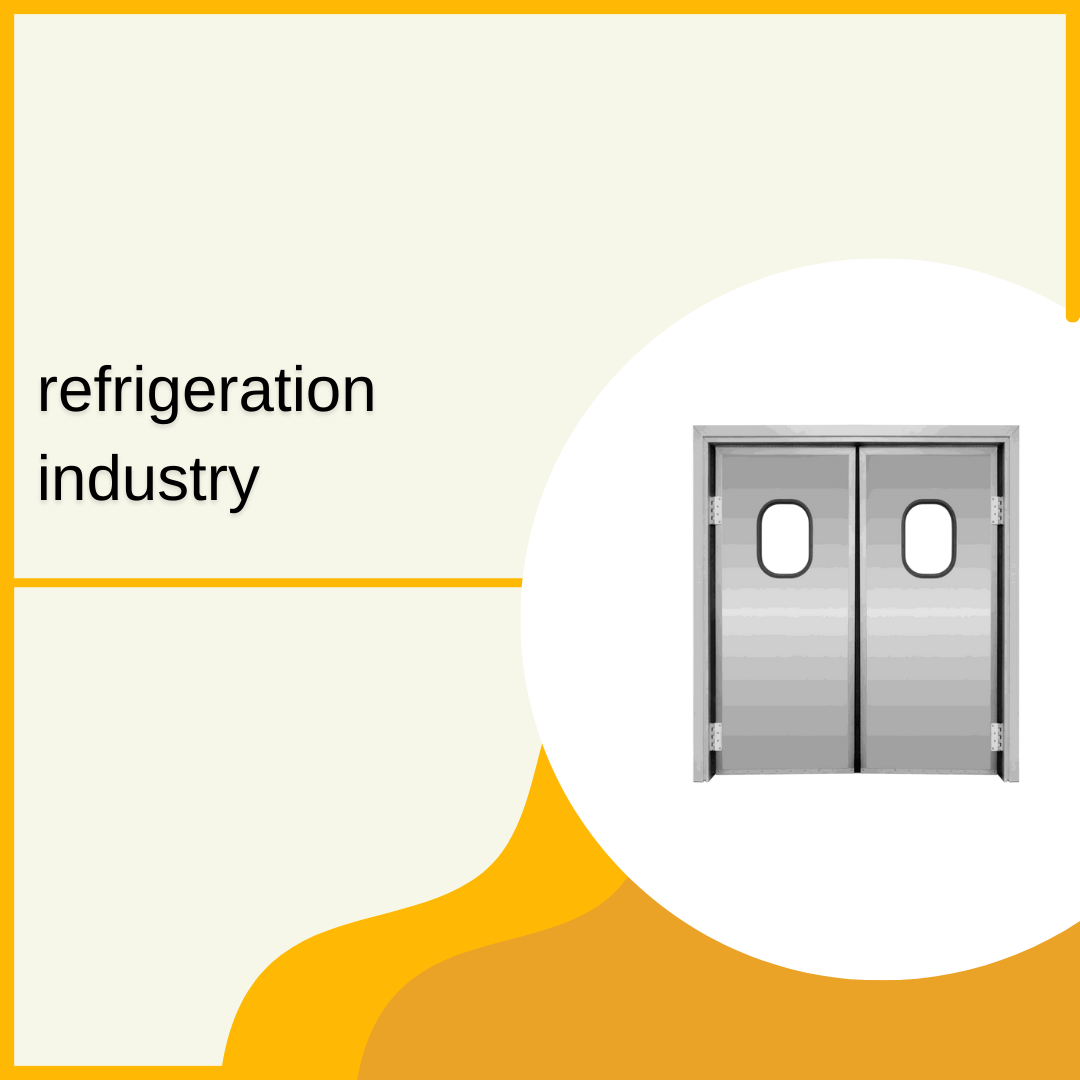Cooling Industry
Refrigeration Industry: The Cornerstone of the Industrial Sector and the Key to a Sustainable Future
The refrigeration industry is one of the most important components of the industrial sector and plays a critical role in every stage of modern production processes, storage, and logistics. With advancing technology, refrigeration systems have become more efficient, providing businesses with significant economic and environmental advantages. Refrigeration has become a fundamental need in industries such as food, chemicals, pharmaceuticals, automotive, and energy. Therefore, the refrigeration industry not only ensures the sustainability of sectors but also plays a vital role in economic development.
Industrial refrigeration systems enhance the efficiency of production processes while preserving product quality and extending storage durations, thus reducing waste rates. For example, in the food industry, refrigeration systems ensure food safety and prevent spoilage. In the chemical industry, certain chemical reactions may require low temperatures for controlled execution. Special refrigeration systems are necessary for such processes. In the pharmaceutical industry, maintaining a stable temperature for drug storage is crucial for health. In all these sectors, the impact of refrigeration technologies is significant because every stage, from production to storage, relies on refrigeration technologies.
The cornerstone of industrial refrigeration systems, these systems provide energy efficiency, offering cost advantages to businesses. Given the high energy consumption of traditional refrigeration methods, modern systems deliver greater efficiency with less energy, reducing environmental impacts and contributing positively to business budgets. Innovative solutions in the refrigeration industry enable higher performance with less energy, allowing companies to reduce their carbon footprint.
The development of the refrigeration industry has helped optimize every aspect of industrial processes. Advances in refrigeration technologies have transformed not only production processes but also logistics and supply chain management. Refrigeration systems ensure products are maintained at the desired temperature during transportation, preserving the quality of goods. Cold chain logistics is critically important in the food and pharmaceutical sectors, and the refrigeration industry’s advancements in this field have increased supply chain efficiency.
Advancing industrial refrigeration solutions are also of great importance in terms of sustainability. Environmentally friendly refrigeration systems use natural refrigerants that do not harm the ozone layer and keep greenhouse gas emissions to a minimum. These systems are designed to reduce environmental impacts and enable the industrial sector to operate in an environmentally friendly manner. Thus, the refrigeration industry takes a significant step toward a more sustainable future.
Additionally, long-lasting and low-maintenance refrigeration systems help businesses reduce costs. Systems that provide high efficiency consume less energy while offering longer use, reducing maintenance and repair costs. High-quality materials and innovative technologies used in industrial refrigeration systems increase the durability of systems, resulting in long-term savings.
In conclusion, the refrigeration industry plays a vital role not only in industrial production processes but also in logistics, food safety, environmentally friendly applications, and energy efficiency. The critical role of the refrigeration industry in the industrial sector will continue to grow in the future, contributing to the sector with more efficient, environmentally friendly, and economical solutions. Industrial refrigeration systems will remain a key cornerstone in adding value to the sector, enhancing operational efficiency, and ensuring sustainability.

Applications of the Refrigeration Industry
The refrigeration industry has a wide range of applications across various fields:
- Food Industry: Refrigeration systems ensure food products remain fresh. During storage and transportation, refrigeration is crucial for the safety of food products.
- Medical Field: Refrigeration systems are necessary for storing and transporting pharmaceuticals, vaccines, and medical supplies. Proper temperature storage is essential to maintain their efficacy.
- Manufacturing Sector: Refrigeration systems are used to prevent overheating of machinery and equipment. These systems ensure the efficient operation of devices on production lines.
Refrigeration System Technologies
In recent years, there has been a major transformation in refrigeration technologies. There has been a shift from traditional refrigeration systems to environmentally friendly and energy-efficient systems. These systems reduce energy consumption while minimizing their negative impact on the environment.
Energy Efficiency
The refrigeration industry is known for its high energy consumption. However, with recent technologies, systems that consume less energy have been developed. Making refrigeration systems more efficient reduces both operational costs and environmental impacts. Innovative systems provide more effective cooling with less energy consumption.
Environmentally Friendly Refrigeration Systems: Investment in the Future
Environmentally friendly refrigeration systems are becoming increasingly important in today’s world, where global warming and environmental issues are on the rise. These systems use technologies that do not harm nature, minimizing their environmental impact while reducing business costs. Environmentally friendly refrigeration not only ensures lower energy consumption but also represents a critical step toward a sustainable future. Next-generation refrigeration technologies offer the ability to achieve more efficient results with less energy, significantly reducing businesses’ carbon footprint.
Most traditional refrigeration systems operate with refrigerants that harm the ozone layer. Gases such as Freon (CFC) and HFC (hydrofluorocarbons) cause ozone depletion and contribute to the greenhouse effect. In environmentally friendly refrigeration systems, these harmful gases are replaced with safer and more eco-friendly alternatives. For example, natural refrigerants like carbon dioxide, ammonia, and propane are commonly used in these systems. These gases have low global warming potential and do not harm the environment.
Another key feature of environmentally friendly refrigeration technologies is their energy efficiency. These systems achieve the same efficiency as traditional systems with less energy. High energy efficiency reduces businesses’ energy bills while minimizing environmental harm. Inverter compressors integrated with advanced technologies optimize energy consumption and use energy only as needed.








